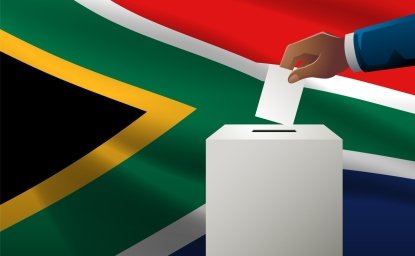Rethinking the Economics of War: The Intersection of Need, Creed, and Greed
A new book from the Wilson Center Press looks at the economics behind internal conflict in a comparative perspective.
A new book from the Wilson Center Press looks at the economics behind internal conflict in a comparative perspective.
Rethinking the Economics of War: The Intersection of Need, Creed, and Greed
New Book from the Woodrow Wilson Center Press Highlights Deprivation and Discrimination as Origins of Armed Conflict
The Woodrow Wilson Center Press and The Johns Hopkins University Press have published a new book, Rethinking the Economics of War: The Intersection of Need, Creed, and Greed, edited by Cynthia J. Arnson and I. William Zartman.
Rethinking the Economics of War: The Intersection of Need, Creed, and Greed questions the adequacy of explaining today's internal armed conflicts purely in terms of economic factors and reestablishes the importance of identity and grievances in creating and sustaining such wars. This collection of essays responds to current works asserting that the income from natural resources is the end and not just a means for warring rebel groups. The study puts greed in its place and restores the importance of deprivation and discrimination as the primary causes of armed conflict within states. Countries studied include Lebanon, Sierra Leone, Angola, the Republic of the Congo, Colombia, and Afghanistan.
Chapters include: "The Political Economy of War: Situating the Debate," Cynthia J. Arnson; "Trafficking, Rents, and Diaspora in the Lebanese War," Elizabeth Picard; "The Evolution of Internal War in Peru: The Conjunction of Need, Creed, and Organizational Finance," Cynthia McClintock; "The Criminalization of the RUF Insurgency in Sierra Leone," Jimmy D. Kandeh; "Resource Wealth and Angola's Civil Wars," Philippe Le Billon; "The Democratic Republic of the Congo: Structures of Greed, Networks of Need," Erik Kennes; "Economic Resources and Internal Armed Conflicts: Lessons from the Colombian Case," Marc Chernick; "Surviving State Failure: Internal War and Regional Conflict in Afghanistan's Neighborhood," Paula R. Newberg; "Economic Factors in Civil Wars: Policy Considerations," David M. Malone and Jake Sherman, and "Need, Creed, and Greed in Intrastate Conflict," I. William Zartman.
"This book develops an important new insight into conflict prevention—the need to bring conflicts born of deprivation and discrimination to an early end before they become stuck in the intractability brought on by greed. It also highlights that greed on the part of governments is often what underlies the deprivation and discrimination that starts the conflict in the first place."—Jan Eliasson, Ambassador of Sweden, President of the Sixtieth General Assembly of the United Nations
"This book provides a valuable synthesis of recent ideas across a range of disciplines. It should become a core work on the subject." — Paul Collier, Professor of Economics and Director of the Centre for the Study of African Economies, University of Oxford
Rethinking the Economics of War: The Intersection of Need, Creed, and Greed is distributed by The Johns Hopkins University Press. The price is $55.00 for hardcover and $22.95 for paperback.
Cynthia J. Arnson is Deputy Director of the Latin American Program at the Woodrow Wilson International Center for Scholars. I. William Zartman is Jacob Blaustein Professor of International Organizations and Conflict Resolution and Director of the Conflict Management Program at the Johns Hopkins University School of Advanced International Studies.
For more information, please contact: Cynthia Arnson, 202-691-4072

The Africa Program works to address the most critical issues facing Africa and US-Africa relations, build mutually beneficial US-Africa relations, and enhance knowledge and understanding about Africa in the United States. The Program achieves its mission through in-depth research and analyses, public discussion, working groups, and briefings that bring together policymakers, practitioners, and subject matter experts to analyze and offer practical options for tackling key challenges in Africa and in US-Africa relations. Read more


The Wilson Center’s prestigious Latin America Program provides non-partisan expertise to a broad community of decision makers in the United States and Latin America on critical policy issues facing the Hemisphere. The Program provides insightful and actionable research for policymakers, private sector leaders, journalists, and public intellectuals in the United States and Latin America. To bridge the gap between scholarship and policy action, it fosters new inquiry, sponsors high-level public and private meetings among multiple stakeholders, and explores policy options to improve outcomes for citizens throughout the Americas. Drawing on the Wilson Center’s strength as the nation’s key non-partisan policy forum, the Program serves as a trusted source of analysis and a vital point of contact between the worlds of scholarship and action. Read more



